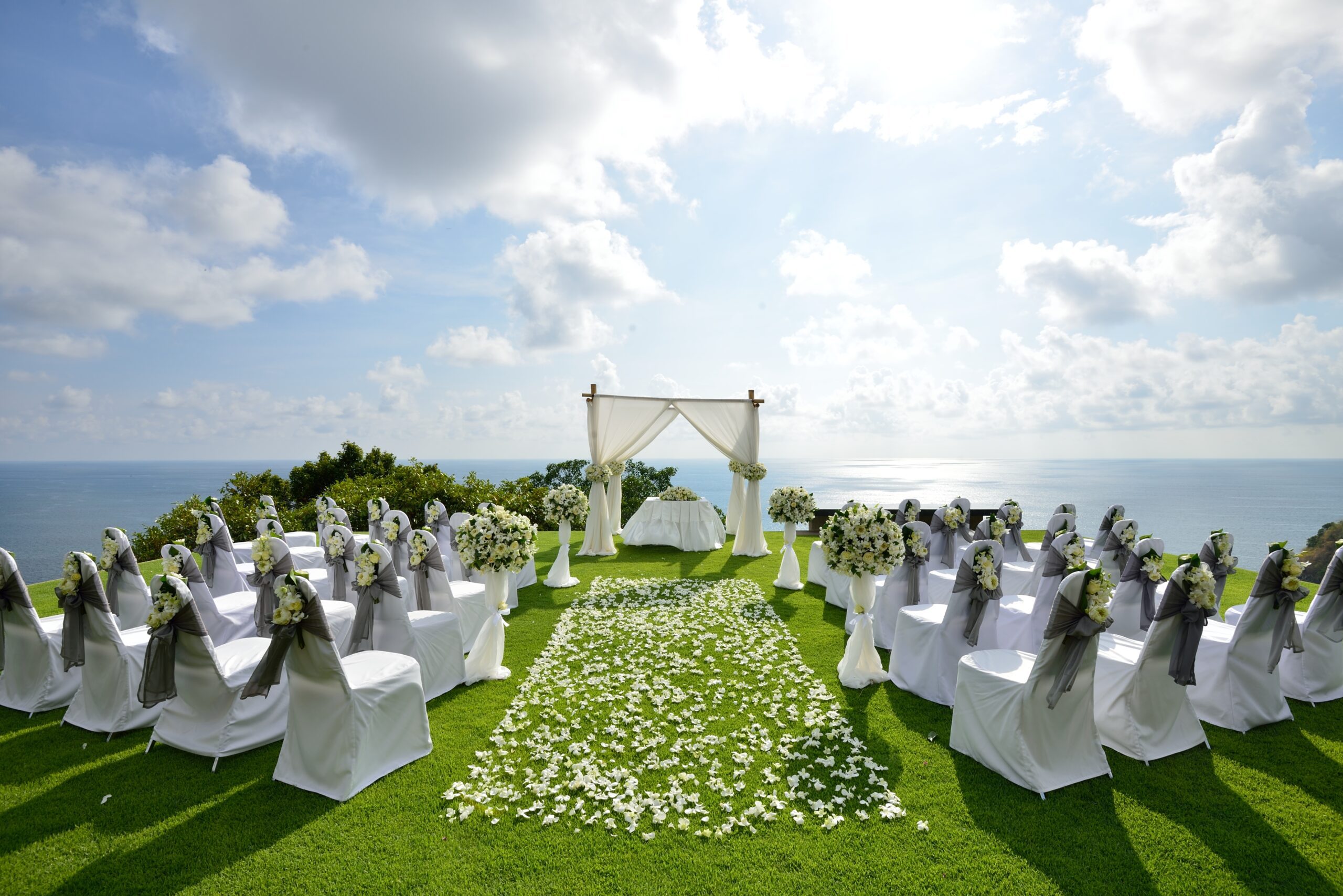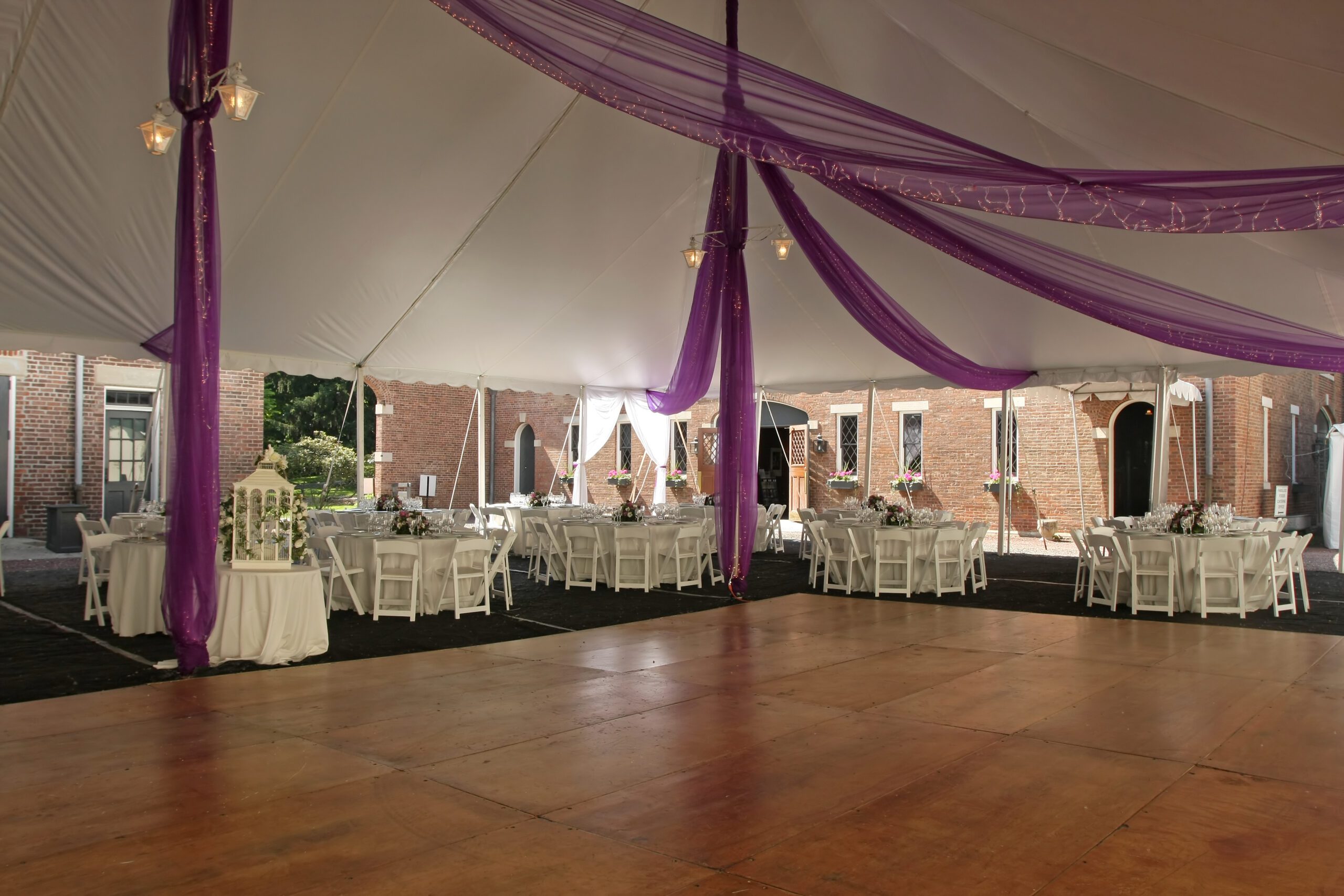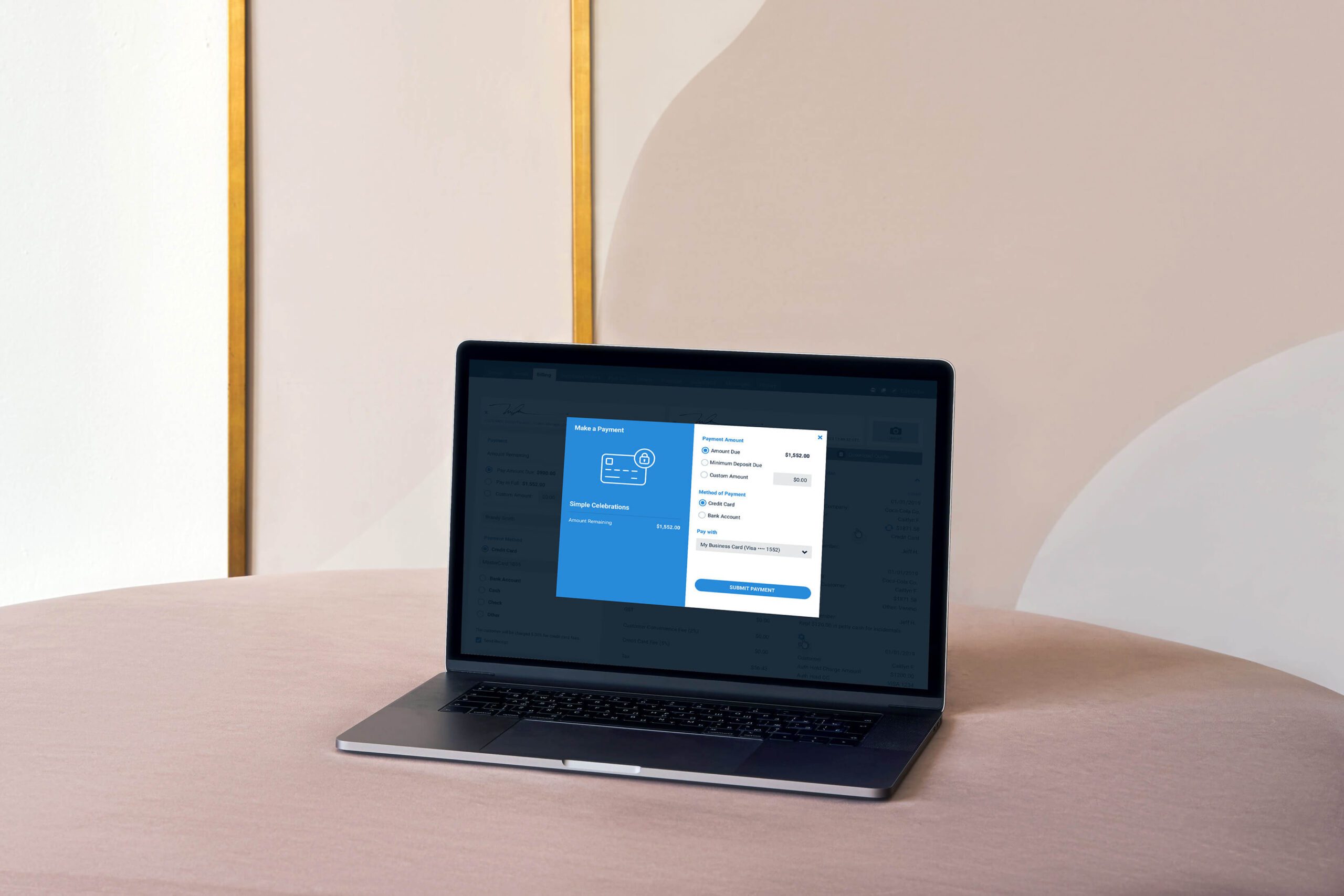“Party rental businesses enjoy an impressive 10-15% profit margin, surpassing the average retail business.”
Finmodelslab
If you’re looking for advice on how to start a party rental business, look no further!
Starting a business, especially if you are a first-time entrepreneur, can be downright scary if you’re exploring the world of self-employment for the first time. First-time small business owners have some scary odds to beat, with 50% of small businesses failing within five years.
But with the right tools and a step-by-step guide, you can turn this opportunity into the best decision of your life. That’s why we’ve put together this step-by-step guide on starting a party rental business:
- Types of Party Rental Businesses
- Is it worth it to start a party rental business?
- How Much Does It Cost to Start a Party Rental Business?
- Step 1: Do your market research
- Step 2: Get your legal paperwork in order
- Step 3: Come up with a business strategy
- Step 4: Obtain your rental equipment
- Step 5: Invest in equipment rental software
Types of Party Rental Businesses
Before we dive into the nitty-gritty of starting a party rental business, let’s talk about what kinds of party rental businesses are out there. While some companies out there specialize in renting tents or tables and chairs, most successful party rental businesses carry a variety of inventory targeting a specific audience:
Wedding Rental Businesses
Party rental businesses that serve formal events like weddings target a niche, but lucrative market. Customers of wedding rental businesses seek elegant and specialized items for their big day, which can fetch a much higher price than other types of inventory.
In general, wedding rental businesses will usually carry:
- Wedding arches and alters
- Tables and table linens
- Chairs and chair covers
- High-quality tents
- Chandeliers, string lights, and lanterns
- Centerpieces and wedding decor

Event Rental Businesses
Event rental businesses serve a broader audience and offer more generic items that are used at parties, festivals, and other types of events that do not require specialized inventory.
By offering one-stop-shop solutions for event essentials, these businesses simplify planning and setup for event organizers. Beyond just rentals, they often offer additional services such as setup, breakdown, and consultation to ensure events run smoothly.
General event rental businesses typically carry:
- Tents
- Chairs
- Tables
- Concession equipment
- Staging and flooring
- Lighting and sound equipment

Children’s Party Rentals
Children’s party rental businesses specialize in products and services that are specifically tailored to kids’ events, such as birthdays or school functions.
They often include entertainment options such as puppet shows, storytelling, and hands-on activities that are both fun and educational, catering specifically to the interests and enjoyment of children.
Here’s what children’s party rental businesses typically rent out:
- Chairs
- Tents
- Themed party supplies
- Inflatables
- Cotton candy machines, popcorn makers, and snow cone machines

Is it worth it to start a party rental business?
We won’t sugarcoat it — starting a party rental business is a lot of work. But if you’re a first-time business owner looking for a market with a low-cost point of entry, starting a party rental business might be a great match.
One unique thing about starting a party rental business is that you can scale as you grow, meaning that you do not need to invest in all of your inventory at once. In fact, we strongly caution against investing a ton of money into inventory upfront due to the seasonal and demand-oriented nature of this market.
However, if you’re prepared to put in the hard work and are committed to making smart business decisions, then a rental business can present a valuable and profitable opportunity
Are Party Rental Businesses Profitable?
According to research, the Global Party Supply Rental Market is projected to reach a whopping USD 37.54 billion by 2030. Rental businesses also enjoy a 10-15% profit margin for the inventory they rent out, which is higher than the average profit netted from average retail stores.
Furthermore, party rental businesses typically have lower overhead costs than traditional retail businesses. They don’t need to invest heavily in maintaining a physical storefront, which can be expensive in terms of rent, utilities, and staffing. Instead, they can operate from a warehouse or storage space, reducing fixed expenses.
What does all of this mean? Data shows us that the demand for rentals is growing and that the potential profit of a well-run party rental business is high! This makes party rental businesses a well-worth investment for first-time business owners, as long as you make smart decisions that will help grow your business.
How Much Does It Cost to Start a Party Rental Business?
Starting a party rental business can vary widely in cost depending on the scale and inventory. For those starting small, initial expenses may range from $5,000 to $10,000, covering basic equipment like tables, chairs, and a small selection of inflatables or party items.
If you decide to go with a full inventory setup—incorporating tents, stages, high-end furniture, and extensive decor—start-up costs could cost up to $50,000 or more.
These figures typically include inventory, initial marketing, and storage facilities, but vary based on location and the specific items you choose to offer.
Still not sure what your niche is? Check out our blog “10 Most Profitable Rental Business Ideas for 2024“, which goes into depth on ten rental business ideas, along with how much it costs to get started!

Step 1: Do your market research
Stop! Before you spend any time and money on starting your equipment rental business, you need to find out what the market is like in your area. Jumping headfirst into the industry without a clear understanding of the market in your specific area can lead to significant challenges and even failure.
When you’re getting started, ask yourself the following questions:
Is there a demand for my product?
The primary reason for conducting market research is to identify whether there is a demand for your rental services in your target area. You need to determine if there’s a sufficient customer base looking for the equipment you plan to offer. Without demand, your business may struggle to survive, as there won’t be enough customers to sustain it.
If it turns out that there isn’t a significant demand for the specific equipment you initially planned to offer, don’t give up. Starting a profitable rental business is still possible, but it means that you must research the equipment that IS in demand within your area.
Here’s where you need to become adaptable. By delving into your local market, you can discover lucrative opportunities. For instance:
- Consider the Local Demographics: Are there numerous families with children in your area? If so, birthday parties and other family-oriented events might be a major source of demand for party equipment. You can pivot your offerings to cater specifically to this market segment.
- Leverage Your Natural Setting: If you reside in an area known for its picturesque landscapes, research whether weddings are a common occurrence. Couples often seek event rentals for outdoor weddings in beautiful settings. This insight can guide your choice of equipment to meet the specific demands of weddings.
- Research Local Businesses and Events: Understand what holds significance to your local community. Perhaps there’s a thriving arts scene or a business community in your area. Tailor your rental offerings to cater to the unique needs and interests of your community.
In essence, market research isn’t solely about assessing demand but also about adapting to meet the needs of your local clientele. By recognizing what’s important in YOUR area and acting upon it, you can create a niche for your rental business that sets you apart and ensures long-term profitability. Remember, being flexible and responsive to local preferences can be the key to your business’s success.
Who is my target audience?
Identifying your target audience is crucial. These are the people you are trying to draw in, and who you will be serving with the products you rent out.
In the party/event industry, your target audience can vary widely based on the niche and services you offer. Some common target audiences include:
- Individual Party Hosts: These could be individuals celebrating birthdays, anniversaries, graduations, or other personal milestones. They often seek a variety of party supplies like tables, chairs, decorations, and entertainment.
- Corporate Event Planners: Businesses frequently organize events, conferences, and seminars. They require professional event equipment and services, such as audiovisual equipment, conference furniture, and stage setups.
- Wedding Planners: Wedding planners need a wide array of rental items, from elegant chairs and tables to decorative elements like arches and centerpieces. Weddings are significant events, and couples often invest in high-quality rentals.
- Festivals and Outdoor Events: Organizers of festivals, fairs, and outdoor events need tents, stages, seating, and various accessories to accommodate large crowds and provide entertainment.
- Event Venues: Event venues that don’t have their own equipment may rent items for their clients, such as banquet halls and conference centers.
Understanding your target audience helps tailor your offerings to their specific needs, which can significantly impact the success of your party rental business. Once you know your target audience, you can adjust your marketing, inventory, and pricing to appeal to these distinct groups and attract loyal customers.
Who are my competitors?
The first step is to identify any existing businesses in your area that offer similar rental services to what you plan to provide. This may involve researching online, checking local directories, and even visiting their physical locations. Make a list of your competitors, and then conduct thorough research! This involves studying their strengths, weaknesses, pricing strategies, customer reviews, and the range of products they offer. Look into their online presence and marketing efforts as well.
Once you’ve identified your competitors and have a deep understanding of their business practices, plan how you will stand apart from their services. Consider offering rental items that your competitors don’t have, or focus on providing high-quality, well-maintained equipment that exceeds customer expectations. You can compete on price by offering more competitive rates or providing attractive packages and discounts. One immediate way that you can set your business apart is by delivering exceptional customer service, and collecting excellent reviews on Google and Yelp!

Step 2: Come Up With a Business Plan
If you’ve done your market research, it’s time to come up with a business plan! A business plan is a detailed document that serves as a guideline for what you want your business to look like. In general, it should include:
- Market research, including your target market and the demand for your products. (Previous section)
- Your business purpose and mission.
- Your marketing strategy, including how you intend to market your business online and any other avenues of lead generation.
- How much it will cost to start your business, and financial projections for the first year.
Here’s a breakdown of what each section of your business plan might look like:
Defining your Business Purpose & Vision
One of the standout characteristics of successful businesses is that they all have visions outlined and defined. A vision statement is a concise, inspirational description of what an organization aspires to achieve in the long term. It provides clarity about the company’s purpose and its ultimate goal.
For example, Google’s vision statement, “to organize the world’s information and make it universally accessible and useful,” reflects the company’s ambition to make information easily accessible. Your business’s vision statement should reflect YOUR business’s long-term goals, which will give you and your teams something to work toward.
In addition to a vision statement, businesses establish both current and long-term goals. These goals provide a roadmap for achieving the company’s vision. Goals, especially when aligned with a compelling vision, can be highly motivating. They give employees a sense of purpose and achievement as they work toward a common goal. Once you have a vision and concrete goals, you can act on them.
Determining a Marketing Strategy
A marketing strategy is essential for running a successful party rental business. In the past, many rental businesses have relied solely on word-of-mouth to get business in the door. While word-of-mouth is certainly a powerful tool, it should not be the only one in your marketing toolbox. Here are some other ways you should market your party rental business:
- Engage in social media marketing across platforms like Instagram and Facebook to showcase your products, share customer testimonials, and promote special offers.
- Develop engaging content that answers potential clients’ questions about event planning and party rentals. Blogs, FAQs, and how-to guides can position your business as a trusted expert in the field.
- Build an email list to send out newsletters, promotions, and updates about new inventory or services, which can help cultivate repeat business and customer loyalty.
To learn more about online marketing strategies for rental businesses, check out our blog “How to Market Your Party Rental Business Online“!
Financial Planning
Financial planning is crucial for the success of a party rental business. Here’s how to approach determining your budget and forecasting profits:
- Start-Up Costs: Assess all initial expenses, such as purchasing inventory, securing a storage facility, and marketing. Whether you start small or go large, understanding these costs will help define your initial financial needs.
- Operational Costs: Regular expenses like maintenance of rental items, transportation, staff salaries, and utilities should be estimated monthly.
- Revenue Streams: Identify potential revenue sources, including various types of rentals and services like setup and delivery.
- Break-Even Analysis: Calculate how long it will take to recover your initial investment. This involves determining at what point the total revenue equals the total costs.
- Profit Forecasting: Based on your revenue estimates and operating costs, project your profits. Consider different scenarios like high season and off-season to understand potential fluctuations in income.
- Financial Buffer: Always plan for a financial cushion to cover unexpected costs or slower business periods. This buffer will help ensure business continuity during unforeseen circumstances.
Additional Resources for Financial Planning:

Step 3: Get your legal paperwork in order
The licenses and certifications needed to operate a party rental or event rental business can vary significantly by state and even county. It’s essential to conduct thorough research and to consult an attorney to ensure your business is fully compliant. Here are some key licenses and certifications to consider:
- Business License: Most jurisdictions require a general business license to operate any type of business. This license essentially registers your business with the local government and ensures you’re following the legal requirements for operating in that area. You can learn more about business licenses and apply here!
- Sales Tax Permit: Depending on your location and the nature of your rental business, you may need a sales tax permit. This allows you to collect and remit sales tax on the items you rent to customers. Failure to comply with sales tax regulations can result in fines and legal issues.
- Insurance: While not a license, obtaining the right insurance is crucial. Liability insurance, in particular, is essential for event rental businesses. It protects you in case of accidents or damage to rental equipment. It’s often a requirement when working with event venues or clients. Several well-known insurance companies offer insurance for rental inventory, including ARA and The Hartford.
- Certifications: Depending on the equipment you’re renting out, there may be specific certifications required. For instance, if you plan to rent out inflatable bounce houses, there might be safety certification or training courses that you or your staff must complete. Thoroughly research the equipment you plan to rent, and whether the laws in your area require a certification or course to rent these items to customers.
Remember, the specific licenses and certifications you need can vary not only by location but also by the equipment you offer and the nature of your services. It’s crucial to consult with local authorities, check relevant government websites, and potentially seek legal advice to ensure full compliance with all necessary licenses and certifications. Failing to do so can result in fines, legal issues, and potentially even the shutdown of your business.

Step 4: Obtain your rental equipment
Finding a Manufacturer
After you’ve mapped out your business strategy, you’re ready to invest in rental equipment for your party rental business. However, you must choose your rental equipment carefully. Consider the needs and preferences of your target audience, and research the quality of manufacturers’ items before you order from them.
Well-made, durable equipment not only lasts longer but also enhances your reputation for providing reliable rentals. When you are looking at a manufacturer, research their reputation within the industry. Read reviews, seek recommendations from peers, and investigate their track record. A manufacturer with a positive reputation is more likely to deliver reliable products.
Ensure that any manufacturer you buy from complies with safety and quality standards relevant to the rental equipment industry. Check for certifications and adherence to industry regulations to minimize safety risks. To help you get started, here are some well known party supply manufacturers:
Know what you’re doing!
As a rental business owner, it’s essential to thoroughly understand the equipment you are offering for rent. Familiarize yourself with the setup, operation, and safety features of each item. This knowledge will enable you to provide accurate guidance to customers.
Seek out manufacturers that offer training sessions or resources on the proper setup and operation of their equipment. These sessions may include in-person training, instructional videos, or written materials. Attend such training to become well-versed in the safe use of the equipment. If you don’t follow this crucial step, then your business may be found liable for damages if your equipment is not properly installed.
Additional Resources on Rental Inventory

Step 5: Keep Track of Your Business
Once orders are rolling in, it’s time to figure out how to keep track. Keeping track of inventory, orders, paperwork, and customer communications is a huge pain point for party rental businesses. But with the right tools, you can significantly cut down on stress, not to mention the operating costs that go into these tasks!
Rental software provides a centralized system where you can input and track orders from order creation to payment and closing. These software solutions provide the following services, geared toward making renting a breeze:
- Automated booking: Rental software simplifies the booking process, allowing customers to make reservations online, select their desired items, and check availability in real time. This automation eliminates the need for manual order entry, reducing the risk of errors and ensuring a seamless experience for your customers.
- Automated communication: Rental software automates communication with your customers. It can send automated confirmation emails, reminders, and follow-up messages, keeping customers informed and engaged throughout their rental journey.
- Quick and easy payment: Streamlined payment processing is a hallmark of modern rental software. It offers various payment options, including online payment gateways, to make it convenient for customers to settle their bills. Automated invoicing and payment reminders also ensure that you get paid promptly, reducing the hassle of chasing down payments.
- Route tracking: For businesses that involve delivery and pickup, route tracking is a game-changer. With this software, you can schedule your routes and keep track of them all in one platform, reducing the need for back-and-forth and ensuring that your routes are always on time!
TapGoods starts at $19 per month, making it the most affordable and comprehensive software solution on the market for small rental businesses.
Ready to Start or Grow Your Rental Business?
Discover how the right rental software can make it easy to get started and grow with confidence.
Here’s to your success!
Remember, every event you contribute to is a moment of joy and celebration for your customers. Your business has the power to create lasting memories and bring happiness to countless gatherings. As you navigate the ins and outs of this dynamic industry, keep learning, adapting, and providing top-notch service.
Stay focused on your vision, prioritize safety, and never underestimate the value of customer satisfaction. With dedication and the right tools, you can build a thriving rental business that will stand the test of time.
Here’s to your success and future!
Other blogs you may find helpful:
Best Practices for Pricing Rental Inventory with a Calculator
5 Reports that Rental Businesses NEED to Review Frequently
The Importance of Equipment and Party Rental Contracts in 2023
Frequently Asked Questions
Party rental businesses enjoy a 10-15% profit margin, which is higher than average profit margins than the typical retail business. These numbers are because rental businesses typically have lower overhead costs than traditional retail businesses. They don’t need to invest heavily in maintaining a physical storefront, which can be expensive in terms of rent, utilities, and staffing. Instead, they can operate from a warehouse or storage space, reducing fixed expenses.
Many party rental items, such as tents, tables, chairs, and tableware, are used repeatedly for various events. This recurring revenue model allows for continuous income from the same inventory, maximizing the return on investment.
Consider offering rental items that your competitors don’t have, or focus on providing high-quality, well-maintained equipment that exceeds customer expectations. You can compete on price by offering more competitive rates or providing attractive packages and discounts.
Encourage customers to provide feedback and reviews. This valuable input can help you identify areas for improvement and showcase the positive experiences of previous customers.
Software solutions like TapGoods offer features that are geared toward saving time and money by simplifying the order process from start to finish. This robust software offers time-saving automated features such as:
- Automated confirmation emails, reminders, and follow-up messages, keeping customers informed and engaged throughout their rental journey
- Allowing customers to make reservations online, select their desired items, and check availability in real time. This automation eliminates the need for manual order entry, reducing the risk of errors and ensuring a seamless experience for your customers.
- Various payment options, including online payment gateways, make it convenient for customers to settle their bills. Automated invoicing and payment reminders also ensure that you get paid promptly, reducing the hassle of chasing down payments.
Party rental businesses enjoy a 10-15% profit margin, which is higher than average profit margins than the typical retail business.
Yes, starting a party rental business from home is possible and can be a cost-effective way to enter the market. You’ll need to ensure that local zoning laws permit commercial activities in your home, have adequate storage for your inventory, and create a professional setup for managing bookings and customer interactions. This home-based approach significantly reduces overhead costs, providing flexibility as you grow your business.
